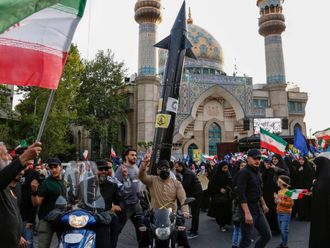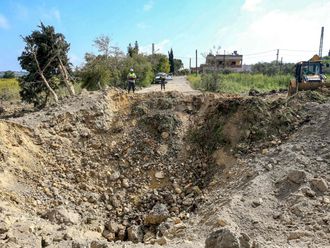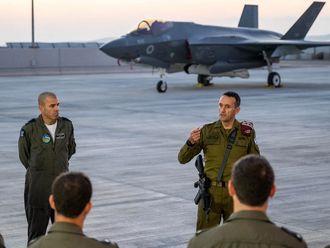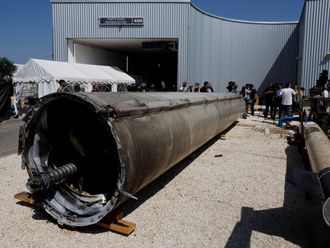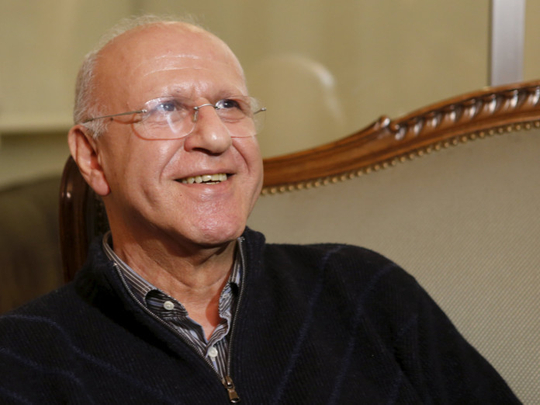
Beirut: Although Lebanese Prime Minister Tammam Salam demanded a speedy retrial for former information minister Michel Samaha, focusing on the “delicate” nature of the case, most Lebanese television viewers were literally shocked on Sunday evening when a leaked video was aired that showed the convict testifying to interrogators that he went to Damascus to specifically bring back various explosives to be used in terrorist operations.
“I went Monday to Damascus and I met with Adnan and he told me that they (the explosives) would be ready the next day,” Samaha confides to the interrogators in the latest leaked video.
Samaha and his personal driver at the time, Fares Barakat, apparently drove another car to the Syrian capital, allowed the Syrian security agent, Adnan, to take the car to an unknown destination, where it was loaded with the explosives and other materials used in bombs, before Samaha returned in it to Beirut.
Samaha was released last Thursday by the country’s controversial military tribunal on a $100,000 (Dh367,240) bail pending a retrial. Except for Hezbollah deputies who defended his release, most politicians condemned the decision. Former prime minister and head of the Future Party, Fouad Siniora, said the military court’s ruling was an “insult to the Lebanese people”.
Even former general security chief Major General Jamil Al Syed, a die-hard pro-Syrian operative, announced the end of his friendship with Samaha on the basis of a putative “ethical duty”. Al Syed, who was arrested for his alleged involvement in the assassination of the late prime minister Rafik Hariri and jailed for four years on orders issued on behalf of the Special Tribunal for Lebanon, blasted Samaha for “betraying his trust” since the two men returned together from Damascus without him knowing what Samaha was hiding in his car.
It was difficult to determine what would happen next as the political hoopla, which was best summarised by Siniora when he said that “the Lebanese people will not accept a new phase of foreign hegemony and will reject a military court that pardons traitors,” will now need to be translated into concrete reforms.
Will Speaker Nabih Berri, who was livid at Samaha’s release, manage to facilitate the legal permutations in parliament to alter the military court’s jurisdiction? Will Minister of Justice Ashraf Rifi, who promised to expedite judicial transformations, persuade political elites to allow the process to move forward? Will Hezbollah, which stands to lose most if the military tribunal loses its prerogatives, tolerate such changes?
Few had any answers to these questions even if the value of the military tribunal, empowered to rule over civilians involved in crimes of spying, treason and illegal connections with the “enemy” at the height of the 1975-1990 civil war, is no longer a pillar of justice. Trying civilians in a military court implied that such cases had security aspects and are dealt with in complete secrecy by the executive branch, mainly the High Defence Council that is exclusively composed of military personnel.
Samaha’s case was investigated confidentially and the five military judges exercised “national security” prerogatives to cover the conduct of the trials, which violated the principles of a fair and public trial, especially when the individual involved confessed to his crimes.
For now, Prime Minister Salam is caught between a rock and a hard place, as he seeks to uphold the law while encouraging the necessary reforms that would abolish the military tribunal’s reach into non-military affairs.
Salam issued a statement after meeting with General Prosecutor Samir Hammoud, who is also the deputy head of the Higher Judicial Council, declaring: “I look forward, like all Lebanese, to have a judicial authority that only bows to the power of right and works to serve justice and implements laws to protect the individual and society.”


